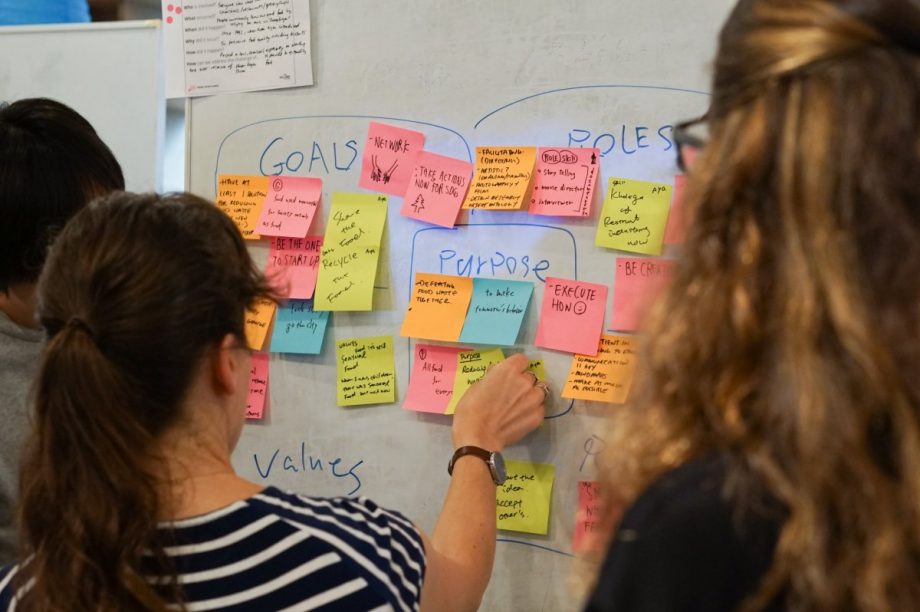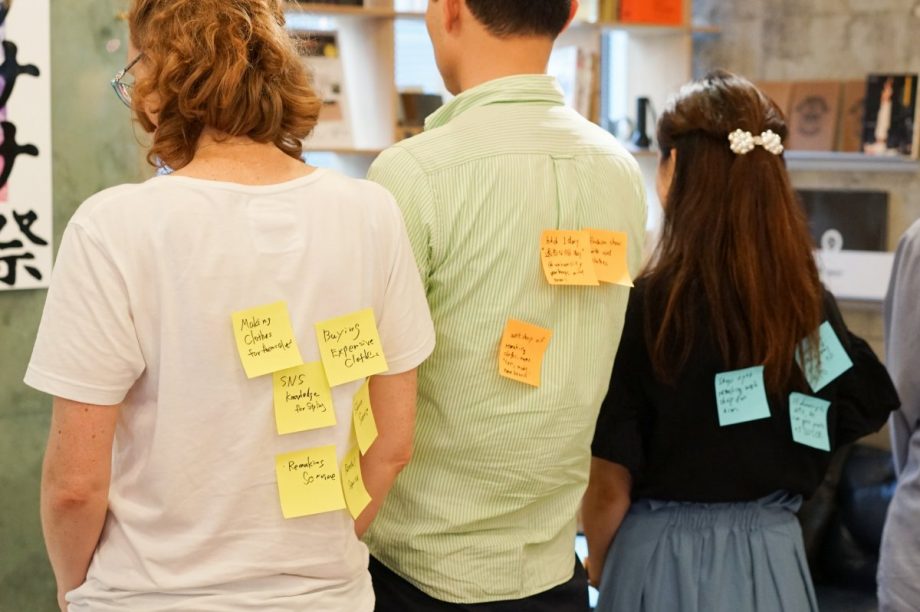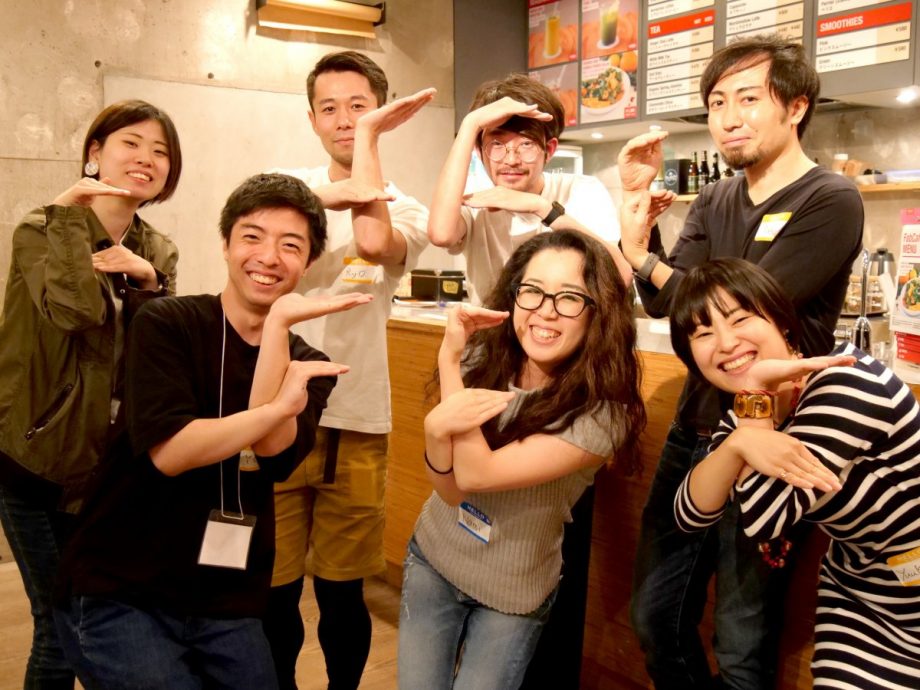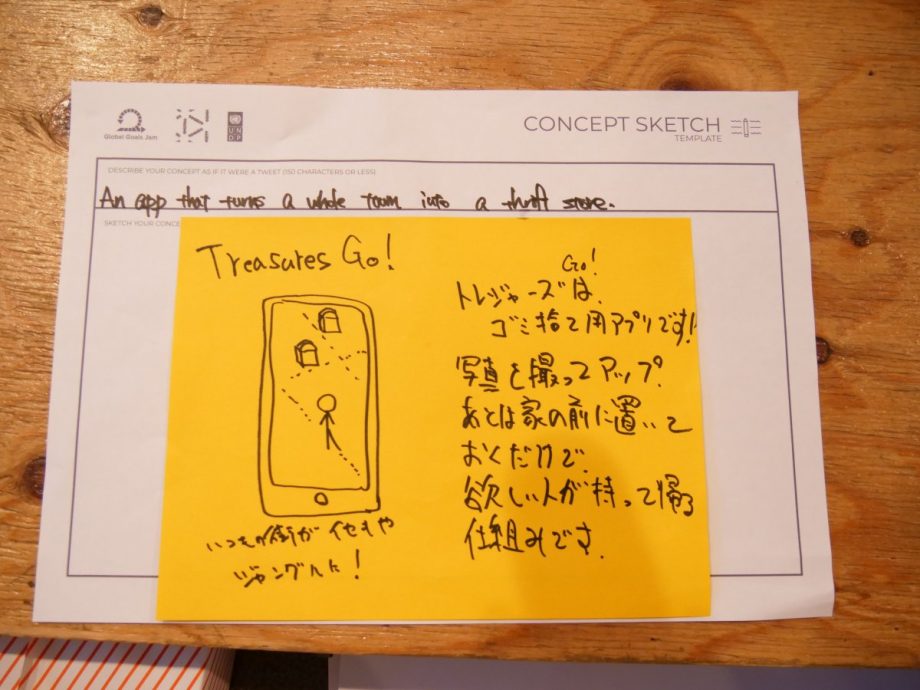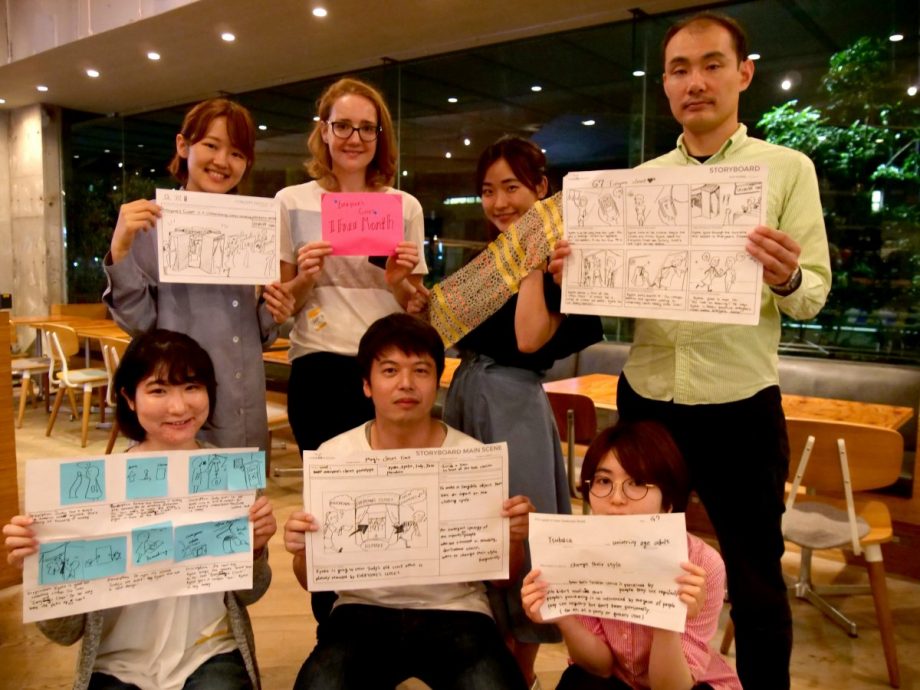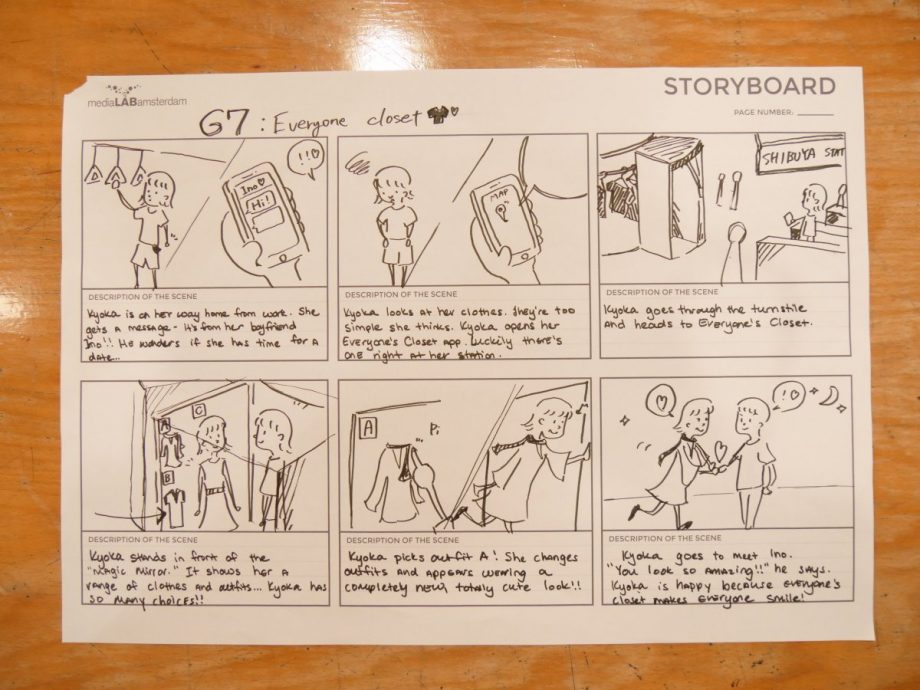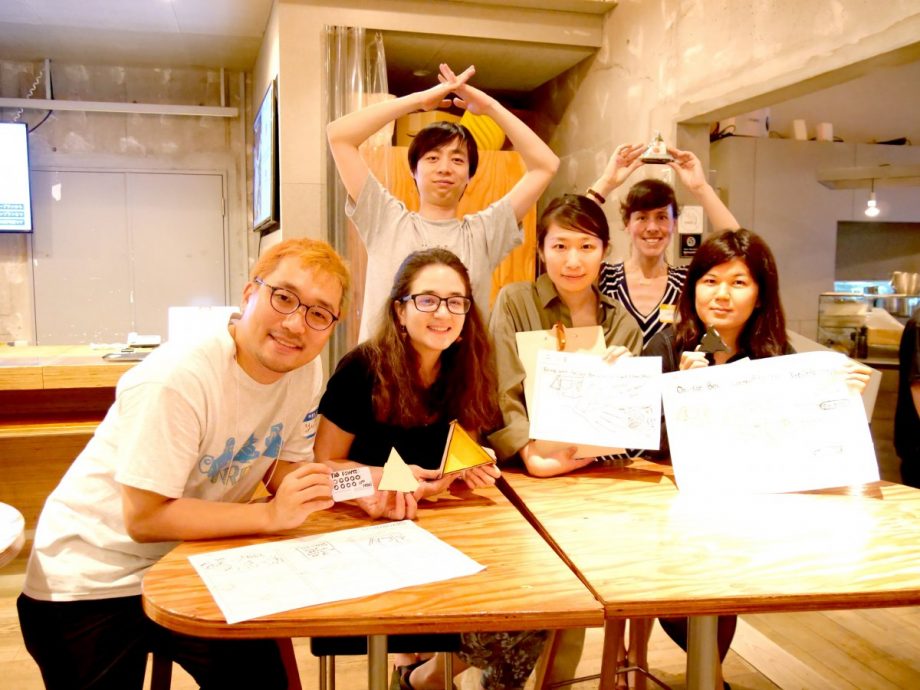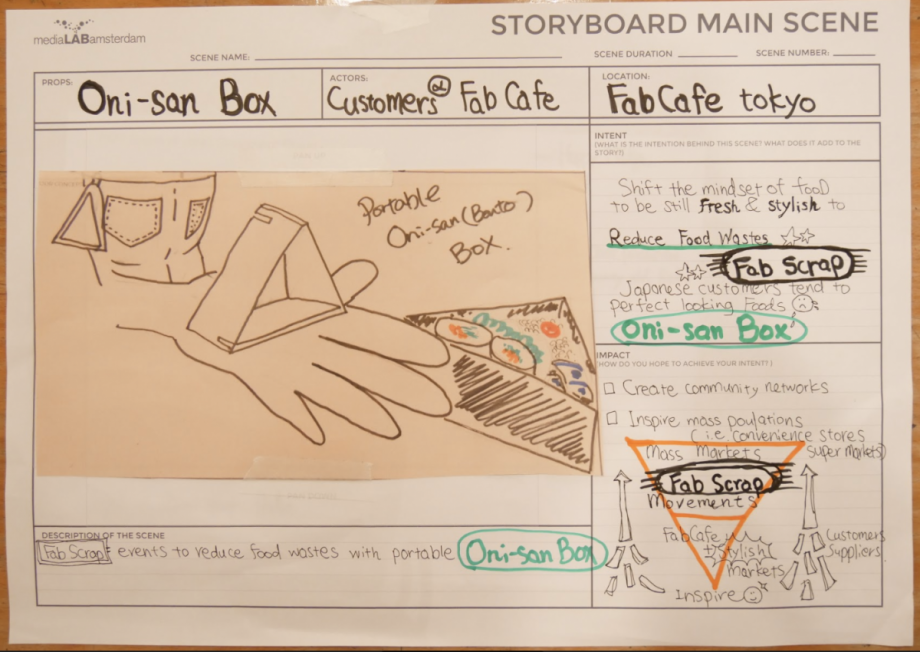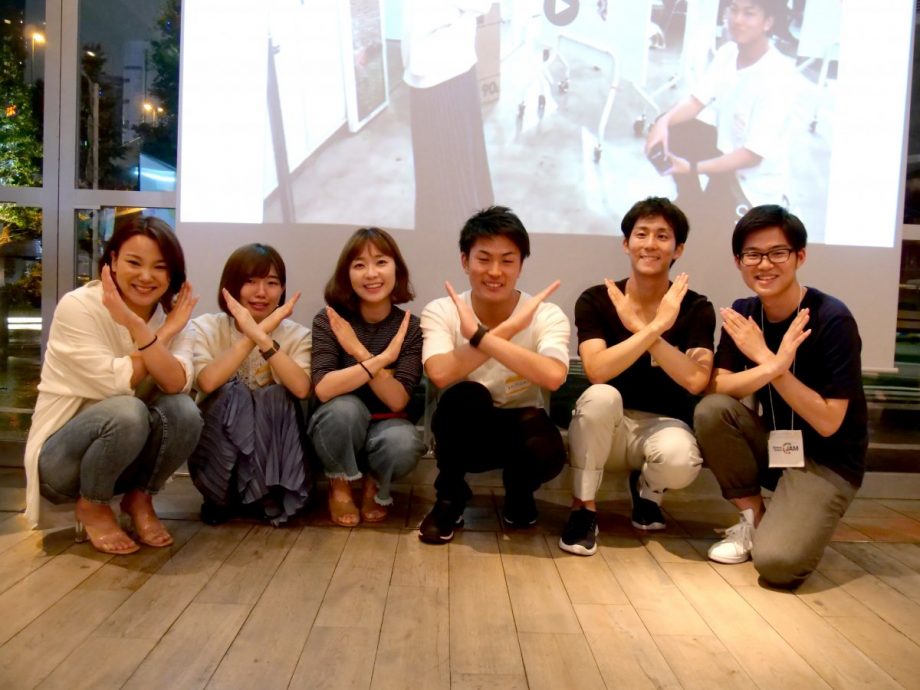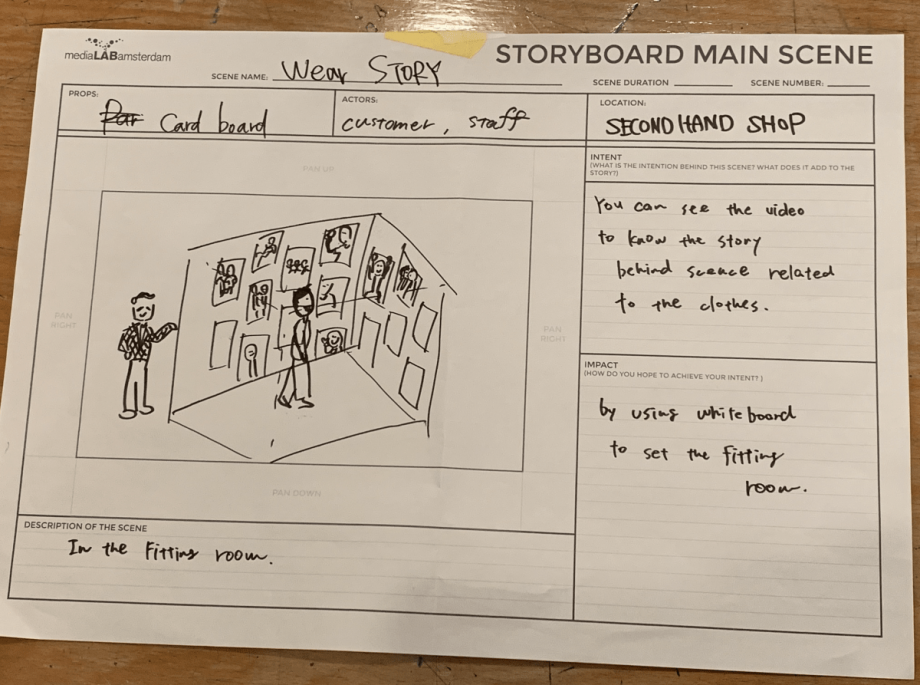Event report
July 8, 2019
Mariko Suzuki
Public Relations / Director of YouFab Global Creative Awards
In September 2019, the United Nations decided on global common goals (the SDGs, Sustainable Development Goals) in order to realize a sustainable society at a global level. In Japan as well, the SDGs have gained widespread attention since 2017, especially with larger companies connecting their activities to SDGs.
At FabCafe and Loftwork, the hackathon “Global Goals Jam” with SDGs as its theme has been held since 2017. The Global Goals Jam is a collaboration between the Digital Society School and the United Nations Development Program, and is held in the same season around the world.
<Global Goals Jam Reports>
2017 Tokyo/2018 Tokyo /2018 Kyoto (Japanese version only)/2018 Hong Kong
On June 29 (Sat) FabCafe held the Global Goals Jam spin-off event WIDD (World Industrial Design Day 2019 MiniJam). At WIDD, sponsored by WDO, an international NGO, the focus was on SDG 12: Responsible Consumption and Production. People with different backgrounds, such as designers, engineers, and marketers, participated in an ideathon for finding ways to realize sustainable consumption and production through the power of design. The ideathon was held for a short period of nine hours on one day. All of the themes of the SDGs are issues of a global scale that cannot be resolved overnight. But what can be conceived by using a design thinking methodology within a limited time?
Written by Mariko Suzuki
A super-concentrated ideathon, in which the design process is broken up into minutes

The general proceedings of the ideathon were in the hands of Kelsie Stewart, who is responsible for global communications at FabCafe Tokyo, and Director Shuhei Kato of Loftwork. Shuhei has a background of teaching students and adults as a design thinking coach at the Hasso Plattner Institute of Design Thinking (the “d-school”). As a team, Kelsie and Shuhei planned the ideathon and trained the team facilitators.

For this ideathon, Kelsie and Shuhei selected the tools and organization and planned the overall flow of the event. The tools that were used were suitable and effective for thinking about sustainability and were taken from the Global Goals Jams JamKit, a design thinking methodology tool kit released as open-source by the Digital Society School.
Introducing the methods used during the one-day ideathon
11:00 Opening
11:00-11:15
Introduction
11:15-12:15
- Think about the issues you want to solve on the theme of SDGs 12 (Tool:#WWWWWH)
- Vote on the issue that you and narrow down the themes you want to work on during the Ideathon. (Tool:Dot voting)
- Divide into ideas and form 4 teams!(Tool: Team Canvas)
12:15-14:30 Sprint #1 Discover
- Identify the stakeholders of the service / product(Tool:Stakeholder’s map)
- Thinking about the content of the interview, interview in the area of Shibuya, Tokyo
14:30-15:45 Sprint #2 Define
- Use point of view statement to gain insights from interviews
15:45-18:30 Sprint # 3 Develop
- Develop product / service ideas(Tool:Concept sketch )
- Get feedback from other groups(Tool:Through other’s eyes)
- Think about experiences and interactions when products / services are used(Tool:Storyboard )
19:30-21:00 Sprint #4 Deliver
- Each team presents product / service ideas through role-playing!
How are the goals of an ideathon established? Aiming for the “internal growth” of the participants over the quality of the output

WIDD was a one-day ideathon organised to think about solutions for SDG 12, Sustainable Consumption and Production. Participants came from a diverse number of specialties and fields of expertise and were formed into teams with people they had never met before.
What can be gained from a focused ideathon held during a short period of time? According to Shuhei, co-event organizer, such an event “gives the participants the opportunity to think and to elicit internal change within them”.
“To be frank, it may be difficult to bring forth high-quality output at a one-day ideathon. Creating output that will become a viable business, after repeating prototype tests over and over, takes approximately a period of three months time. In this case, in which there is only one day, I believe it should be an opportunity to personalize the subject by observing things that you are familiar with, rather than with secondary information heard on the news, etc.”
The primary objective of a short ideathon such as this one is not its output, but the changes within the participants themselves. By getting away from a group that is made up of people who are similar to a person, such as a company or a school, meeting people from various backgrounds and by touching upon the sense of values of different people through your teammates and interviews, not only the way you look at yourself but also what you see will change. It will change the behavior of those people after that ideathon has ended”.
The skill of a coach is to be able to energize participants and to create an environment where “change” can occur


Coaching by using facilitation skills is the key to a successful ideathon.
A coach must be able to create an environment that both brings out the energy of the participants and an environment in which change can occur. Change occurs when you step out of your comfort zone. Shuhei says that it is important for the coach to take the initiative in creating such an environment, where you can do things that you normally do not. The coaches at WIDD had been trained by Kelsie and Shuhei, and the young team members of Loftwork are up to the challenge! It appeared to be a good opportunity for growth for them as well.
Sustainable consumption and production ideas from the four teams
At the end of the day, each team held a presentation about their ideas as a summarization of the one-day ideathon. With a smile, the teams present their concept sketches of the day. All presentations were held in English.
Happy Fridge
Challenge: to eliminate illegal dumping of refrigerators
Idea: 〜Treasures GO!〜
“Treasures GO!” is an app that uses gamification where you look for treasures that have been left around town. You can either be a treasure hunter or a treasure supplier. You take photos of your own fridge, lamp, sofa, etc. and when you place them in front of your house, the treasure hunters will come and look for them and pick them up.
https://awrd.com/creatives/detail/8356428
Team G7: Everyone’s Closet
Challenge: to eliminate the habit of buying a lot of clothes and throwing them away
Idea: 〜Everyone’s closet〜
A subscription service that collects, mends, and shares clothes that you no longer wear. If you donate clothes that you no longer wear to “everyone closet”, they will be mended by people who are good at mending clothes. When members go to the “everyone closet” close to the station, they can select clothes that suit them, and walk out wearing them. Those who donate clothes and mend clothes will receive members discount tickets- having everyone make and use them influences the production and consumption cycles of clothes.
https://awrd.com/creatives/detail/8353948
Taste the food
Challenge: to reduce food waste in urban areas
Idea: 〜Oni-san Box〜
A prototype of the stylish portable lunchbox “Oni-san BOX”, which reduces food waste in a fun way. It is hygienic as it can be taken apart and cleaned easily. It has been produced with the assumption that there will be a situation where if you bring the “Oni-san BOX” to a participating store, you can have “a waste to let go to waste food” that resulted, for instance, from mistaken orders or by being close to the expiration date, offered cheaply or for free.
https://awrd.com/creatives/detail/8356058
Cheerful 6: Wear Story
Challenge: to fight against the mass-production and consumption of clothes
Idea: 〜Wear story〜
An effort to promote reusing clothing by focusing on the personal stories attached to the clothing. By sharing the stories of your own clothes on social media, you can not only obtain second-hand clothing cheaply, but it is also a service where you can experience the story of those clothes in VR in the fitting room!
https://awrd.com/creatives/detail/8355990

I thought it would be difficult for the teams to handle the design process successively without many breaks, but after the event had ended, all the participants were smiling. Listening to the stories, I heard from everyone that it was a satisfying time during which they did not get tired or weary. This might have been because it was a short period of nine hours during which all of these ideas were cultivated.
Global Goals Jam 2019 will be held on September 21 and 22. We aim to solve the issues of the world through ideathons and hackathons, in which there will be opportunities for individual growth for all.
-
Mariko Suzuki
Public Relations / Director of YouFab Global Creative Awards
She is in charge of global planning and promotion at Loftwork. She is also the global project PM at the creator portal “awrd.com,” and the producer of the global award “YouFab Global Creative Awards.” She is a member of the team which launched “Fab Meetup,” a neworking and presentation event for creators held at FabCafe every month. She is one of the most community-friendly members at Loftwork, and is also admired by the creators who congregate at FabCafe.
She is in charge of global planning and promotion at Loftwork. She is also the global project PM at the creator portal “awrd.com,” and the producer of the global award “YouFab Global Creative Awards.” She is a member of the team which launched “Fab Meetup,” a neworking and presentation event for creators held at FabCafe every month. She is one of the most community-friendly members at Loftwork, and is also admired by the creators who congregate at FabCafe.

